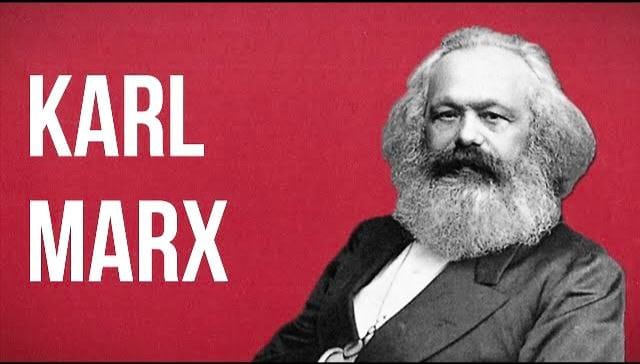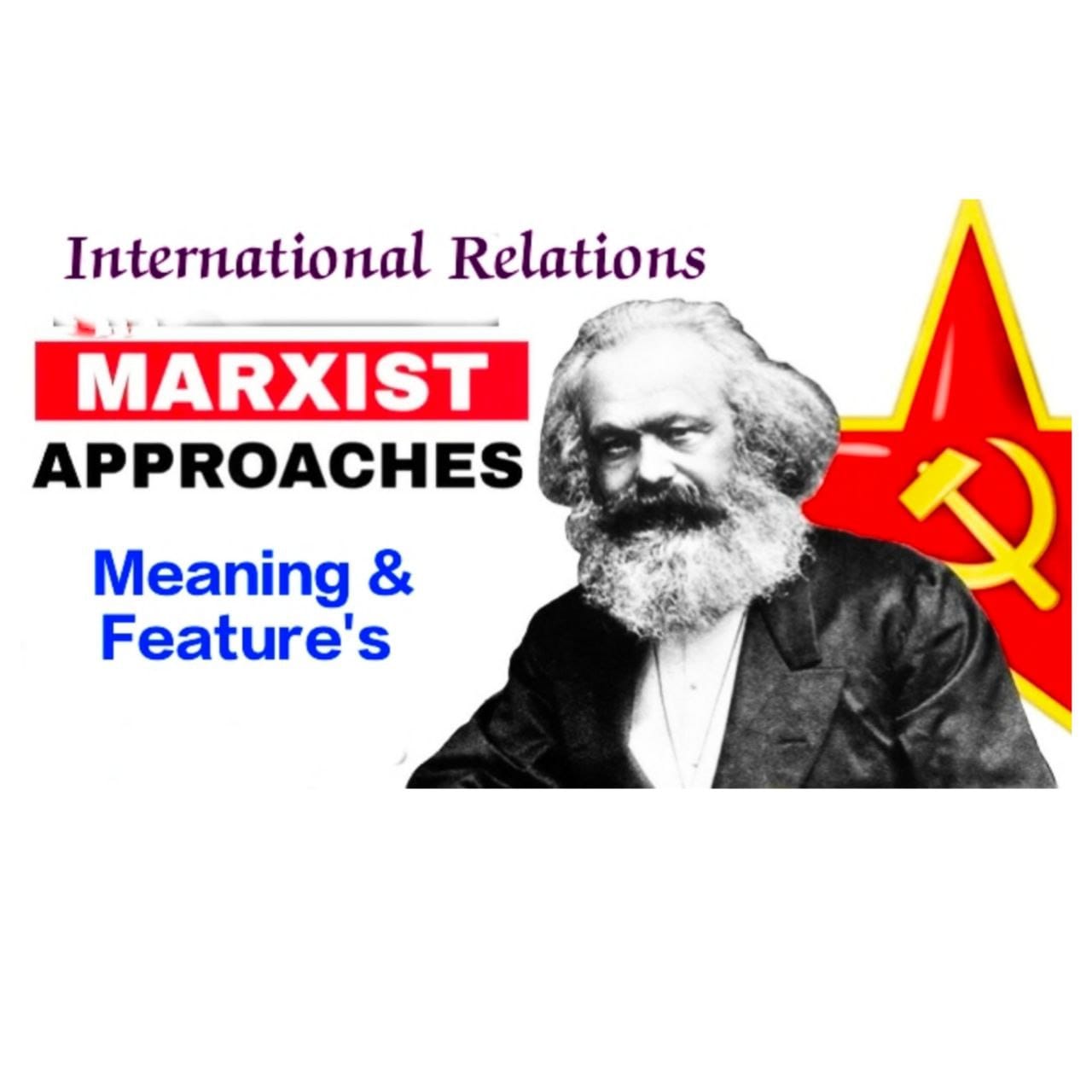Meaning of the Marxian Approach in International Relations
The Marxian approach to international relations (IR) is rooted in the ideas of Karl Marx and Friedrich Engels, who developed a critique of capitalism and its effects on society. In the context of international relations, Marxian theory emphasizes the role of economic structures, particularly capitalism, in shaping global political dynamics. The Marxian approach is concerned with the ways in which economic exploitation, class struggle, and the imperialistic nature of capitalism influence the relations between states and international actors.
In Marxian IR theory, international relations are viewed as an extension of domestic social and economic struggles, particularly between the bourgeoisie (the capitalist class) and the proletariat (the working class). The focus is on how global capitalism creates and perpetuates inequalities both within and between nations, leading to conflict, domination, and exploitation.
The Marxian approach is often referred to as critical theory or historical materialism in international relations, and it seeks to uncover the underlying economic forces that drive state behavior, international conflicts, and global power structures.

Key Features of the Marxian Approach in International Relations
- Historical Materialism:
- Historical materialism is a central concept in Marxian theory. It argues that the material conditions of life (economic production and class relations) shape human societies, including their political and ideological superstructures.
- In international relations, historical materialism suggests that the global capitalist system and its historical development (through industrialization, colonialism, and imperialism) determine the interactions between states and other international actors. The focus is on the economic base of society, which influences the political and legal institutions that exist in the international system.
- Class Struggle and Exploitation:
- A key feature of the Marxian approach is the emphasis on class struggle. According to Marx, all human history is the history of class struggle, and this is also reflected in international relations. The bourgeoisie (capitalists) control the means of production and exploit the proletariat (working class) for profit.
- In the international context, core capitalist states exploit peripheral and semi-peripheral states in the global economic system, often referred to as the global North and global South divide. Rich, industrialized countries dominate poorer, developing nations through economic policies that reinforce global inequalities.
- Imperialism:
- Marxist theory argues that capitalism is inherently imperialistic. Capitalist states seek new markets, resources, and cheap labor to expand their profits, leading to the colonization and economic domination of less developed countries.
- Lenin’s theory of imperialism, a key extension of Marxist thought, posits that capitalism, in its highest stage, drives states to imperialism as they seek to export their surplus capital and avoid economic crises at home. This results in the exploitation and underdevelopment of colonized or economically weaker nations.
- World-System Theory:
- World-system theory, developed by Immanuel Wallerstein, is a Marxian-inspired framework that divides the world into three types of countries: core, semi-periphery, and periphery. Core countries are wealthy, developed, and dominant in global trade, while peripheral countries are poor and dependent on exporting raw materials and labor.
- This system of global economic relations perpetuates inequality, as core countries exploit the labor and resources of peripheral countries, leading to underdevelopment in the global South while enriching the global North. Semi-periphery countries occupy a middle position, with some industrial capacity but remaining subject to exploitation.
- Global Capitalism:
- Marxian IR theorists focus on how global capitalism shapes the international system. They argue that the world is organized around the needs of capital accumulation, and this shapes the behavior of states, multinational corporations (MNCs), and international institutions.
- Transnational corporations and global finance are seen as powerful actors that transcend state borders, contributing to a system where states, especially weaker ones, are subservient to the demands of global capitalism. This global economic system prioritizes the interests of the wealthy elite at the expense of the working class and marginalized populations.
- Economic Determinism:
- Marxian approaches emphasize economic determinism, which means that political and social phenomena are determined by underlying economic conditions. In international relations, this means that the behavior of states and international organizations is driven primarily by economic interests, particularly the interests of the ruling capitalist class.
- Wars, alliances, and diplomatic actions are seen not as the result of ideological or moral concerns but as the outcome of economic imperatives. States pursue policies that protect and expand capitalist interests, often at the expense of other states or the global working class.
- Global Inequality:
- Marxian IR theory highlights the role of global inequality in international relations. The capitalist system, both historically and in its modern form, creates uneven development between nations, leading to the enrichment of some and the impoverishment of others.
- The global South—largely composed of developing countries—faces economic dependence on the global North, which dominates international trade, finance, and political institutions. This inequality is not accidental but a structural feature of global capitalism, where wealth is concentrated in a few hands while the majority of the world’s population remains in poverty.
- Critique of International Institutions:
- Marxian theorists are critical of international institutions such as the World Bank, International Monetary Fund (IMF), and the World Trade Organization (WTO). These institutions are seen as tools of global capitalism that enforce policies benefiting the wealthy, industrialized countries and global corporations.
- Structural adjustment programs imposed by the IMF and World Bank, for example, are criticized for forcing developing countries to adopt neoliberal economic policies (such as privatization, deregulation, and austerity), which often lead to greater inequality and social unrest.
- Revolutionary Change:
- Marxian IR theorists believe that revolutionary change is necessary to overthrow the capitalist system and create a more just and equitable world order. The global capitalist system perpetuates inequality, exploitation, and conflict, and only through a revolutionary transformation can the working class gain control of the means of production and establish a system based on equality and cooperation.
- Marxists argue that global capitalism will ultimately lead to its own downfall, as the contradictions of the system (e.g., inequality, exploitation, and overproduction) will cause crises that necessitate systemic change.
- Transnational Class Struggle:
- A key feature of the Marxian approach is the idea of transnational class struggle. Marxist IR theorists argue that class struggle is not confined to individual states but extends across national borders.
- The working class in both developed and developing countries faces a common struggle against the global capitalist elite. Marxian theorists advocate for international solidarity among workers to challenge the global capitalist system and fight for more equitable economic and political structures.
Conclusion
The Marxian Approach to international relations offers a critical analysis of how economic forces shape global politics. It emphasizes the role of class struggle, imperialism, and global capitalism in creating and maintaining inequalities between nations and within societies. Unlike traditional IR theories that focus on state power and security, Marxian IR theory views international relations through the lens of economic exploitation and the interests of the capitalist class. Marxian scholars advocate for revolutionary change to create a more just and equitable world system, one that addresses the deep-seated inequalities perpetuated by global capitalism.

